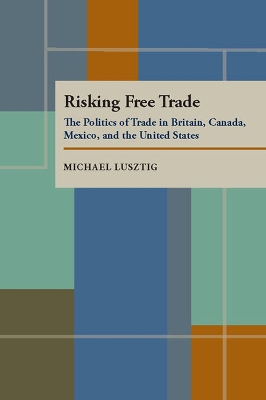Pitt Series in Policy & Institutional Studies
1 total work
There are few issues as politically explosive as the liberalization of trade, as recent controversies in the United States, Canada, and Mexico have shown. While loosening trade restrictions may make sense for a nationÆs economy as a whole, it typically alienates powerful vested interests. Those interests can exact severe political costs for the government that enacts change. So why accept the risk?Michael Lusztig contructs a model to determine why and under what conditions governments will take the free trade gamble. Lusztig uses his model to explain shifts to free trade in four cases: BritainÆs repeal of the Corn Laws; the United StatesÆ enactment of the Reciprocal Trade Agreements Act (1934); CanadaÆs decision to initiate continental free trade with the United States in 1985; and MexicoÆs decision to pursue the North American Free Trade Agreement (NAFTA) in 1990.
